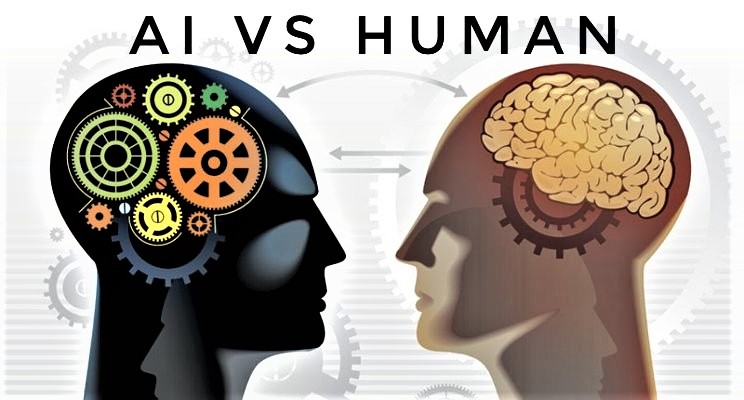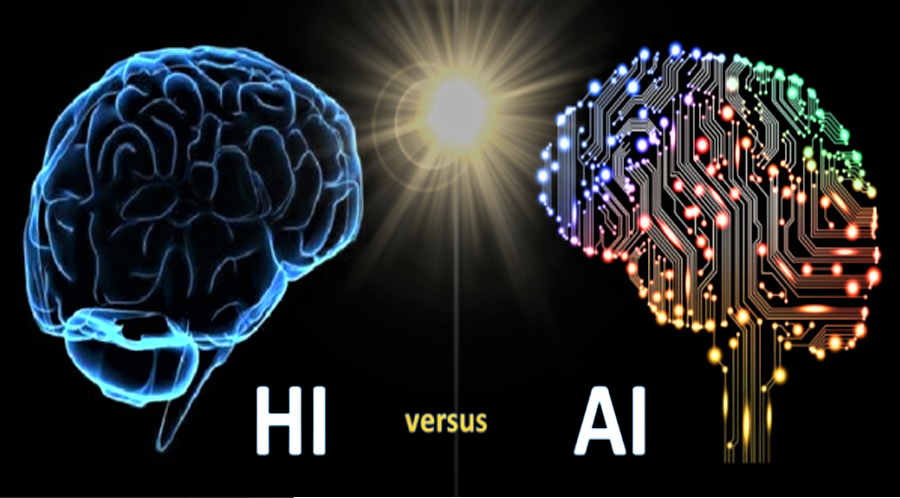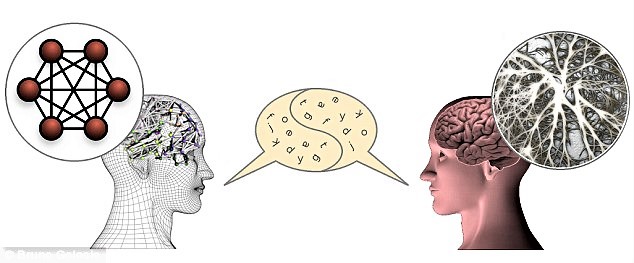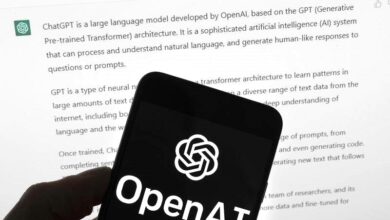Artificial intelligence vs. human intelligence: How are they different?
Artificial intelligence how is it different from human intelligence?

How are they different? In the realm of technological innovation, the stark contrast between artificial intelligence (AI) and human intelligence has captivated researchers, philosophers, and enthusiasts alike. As AI continues its remarkable progression, it’s crucial to understand how it diverges from the multifaceted and intricate realm of human intelligence. This article ventures into the domains of AI development, cognitive distinctions, and the overarching impact these differences have on various aspects of our lives.

Artificial Intelligence: Revolutionizing the Landscape
AI has undeniably emerged as a transformative force across industries. From self-driving cars to recommendation systems, AI systems exhibit an extraordinary ability to process vast amounts of data and learn patterns, mimicking human decision-making processes. Machine learning and deep learning algorithms empower AI systems to evolve and adapt, propelling the technology to new heights.
Human Intelligence: The Essence of Complexity
Human intelligence encompasses a spectrum of abilities that extend beyond problem-solving. Emotional intelligence, creativity, empathy, and ethical decision-making are traits uniquely human. The fusion of conscious experiences, emotions, and cognitive faculties creates a depth of understanding that AI, despite its prowess, struggles to replicate.
The Cognitive Chasm: Can AI Truly Think?
AI excels at tasks driven by data and patterns. However, it lacks genuine consciousness, self-awareness, and the ability to experience emotions. Human intelligence embraces intuition, contextual understanding, and ethical considerations that stem from cultural, social, and personal experiences. These elements pose significant challenges for AI to overcome.
Navigating the Ethical Maze: Bias and Accountability
AI, while remarkable, is not exempt from the biases encoded into its algorithms by its creators. Human intelligence acknowledges the implications of these biases and grapples with the ethical responsibility to rectify them. The question arises: Can AI be held accountable for its decisions in the same way humans are?
Future Horizons: Collaboration or Confrontation?
As AI continues to advance, questions of collaboration versus confrontation between artificial and human intelligence come to the forefront. The symbiotic relationship between the two is a plausible direction, where AI augments human capabilities rather than replaces them entirely. The creative spark of human ingenuity coupled with AI’s processing power could usher in a new era of innovation.

FAQs:
What is the fundamental difference between AI and human intelligence?
AI is a product of programming and data processing, whereas human intelligence encompasses consciousness, emotion, and a wide array of cognitive abilities.
Can AI experience emotions like humans do?
No, AI lacks the capacity for genuine emotional experiences; its “emotions” are simulated based on data patterns.
Is AI capable of moral decision-making?
AI makes decisions based on algorithms and data, devoid of intrinsic moral awareness. Human intelligence factors in ethics, emotions, and cultural nuances.
Will AI eventually surpass human intelligence?
While AI may excel in specific tasks, replicating the entirety of human intelligence, including creativity and consciousness, remains a distant goal.
How does bias manifest in AI algorithms?
Bias in AI algorithms stems from the data used to train them, often reflecting societal biases present in the data.
Can AI completely replace human creativity?
AI can generate content based on patterns it learns, but true creativity involves a blend of emotions, experiences, and contextual understanding that AI lacks.
What are some potential collaborative roles for AI and human intelligence?
AI can assist in data analysis, research, and automation, while humans provide nuanced decision-making, creative ideation, and emotional understanding.
Is human intuition replicable in AI?
AI can simulate intuition by analyzing patterns, but it doesn’t possess genuine intuitive understanding as humans do.
How does the understanding of ethics differ between AI and humans?
Human ethics are influenced by culture, empathy, and experiences, while AI’s ethics are derived from programmed rules and data patterns.
Can AI contribute to human self-discovery and personal growth?
AI can offer insights based on data analysis, but the introspection, emotional growth, and self-awareness inherent to human intelligence remain exclusive to humans.
Conclusion:
The dichotomy between artificial intelligence and human intelligence is a testament to the complexity of the human mind and the marvel of technological advancement. As AI continues to push boundaries, it’s imperative to recognize that while AI may excel in certain domains, the essence of human intelligence is a symphony of emotions, consciousness, and creativity that transcends mere data processing. By embracing the distinctions between these two realms, we can pave the way for a harmonious integration that amplifies the strengths of both artificial and human intelligence.




